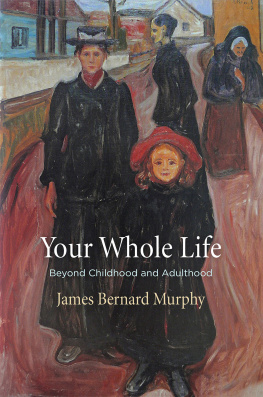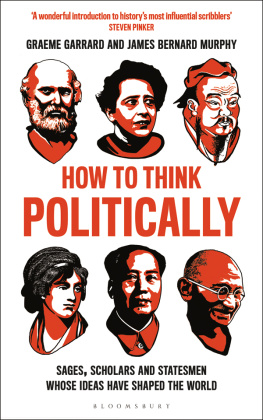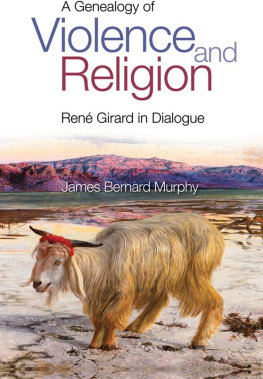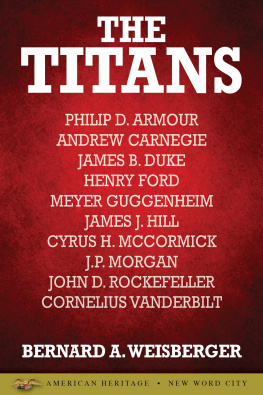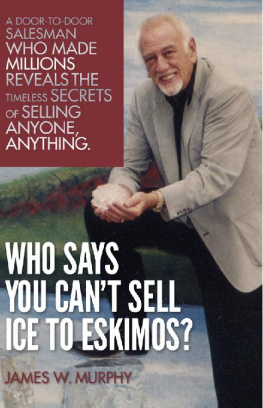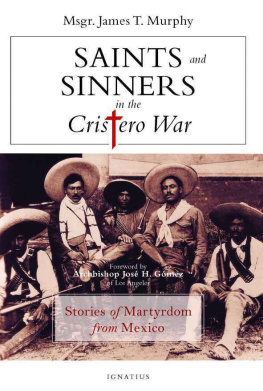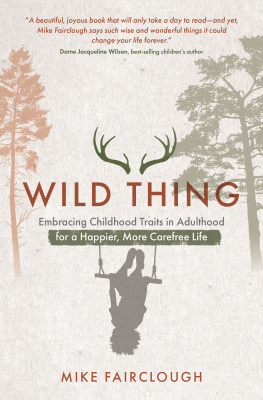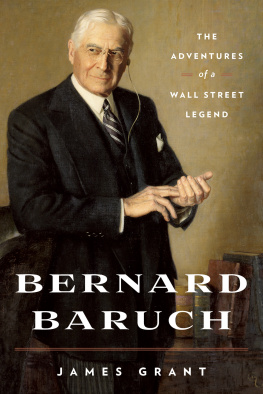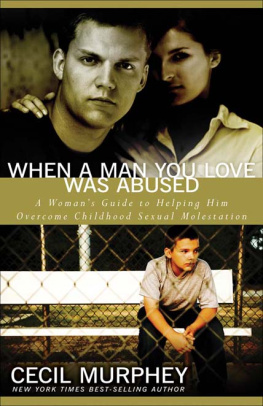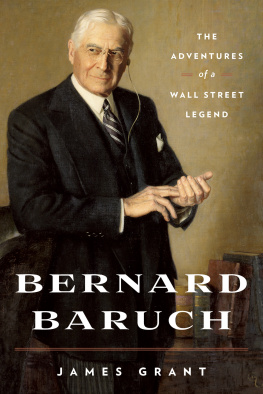James Bernard Murphy - Your Whole Life: Beyond Childhood and Adulthood
Here you can read online James Bernard Murphy - Your Whole Life: Beyond Childhood and Adulthood full text of the book (entire story) in english for free. Download pdf and epub, get meaning, cover and reviews about this ebook. year: 2020, publisher: University of Pennsylvania Press, Inc., genre: Children. Description of the work, (preface) as well as reviews are available. Best literature library LitArk.com created for fans of good reading and offers a wide selection of genres:
Romance novel
Science fiction
Adventure
Detective
Science
History
Home and family
Prose
Art
Politics
Computer
Non-fiction
Religion
Business
Children
Humor
Choose a favorite category and find really read worthwhile books. Enjoy immersion in the world of imagination, feel the emotions of the characters or learn something new for yourself, make an fascinating discovery.
- Book:Your Whole Life: Beyond Childhood and Adulthood
- Author:
- Publisher:University of Pennsylvania Press, Inc.
- Genre:
- Year:2020
- Rating:3 / 5
- Favourites:Add to favourites
- Your mark:
- 60
- 1
- 2
- 3
- 4
- 5
Your Whole Life: Beyond Childhood and Adulthood: summary, description and annotation
We offer to read an annotation, description, summary or preface (depends on what the author of the book "Your Whole Life: Beyond Childhood and Adulthood" wrote himself). If you haven't found the necessary information about the book — write in the comments, we will try to find it.
Your Whole Life: Beyond Childhood and Adulthood — read online for free the complete book (whole text) full work
Below is the text of the book, divided by pages. System saving the place of the last page read, allows you to conveniently read the book "Your Whole Life: Beyond Childhood and Adulthood" online for free, without having to search again every time where you left off. Put a bookmark, and you can go to the page where you finished reading at any time.
Font size:
Interval:
Bookmark:

Beyond Childhood and Adulthood
James Bernard Murphy

UNIVERSITY OF PENNSYLVANIA PRESS
PHILADELPHIA
A volume in the Haney Foundation Series, established in 1961 with the generous support of Dr. John Louis Haney.
Copyright 2020 University of Pennsylvania Press
All rights reserved. Except for brief quotations used for purposes of review or scholarly citation, none of this book may be reproduced in any form by any means without written permission from the publisher.
Published by
University of Pennsylvania Press
Philadelphia, Pennsylvania 19104-4112
www.upenn.edu/pennpress
Printed in the United States of America on acid-free paper
10 9 8 7 6 5 4 3 2 1
A catalogue record for this book is available from the Library of Congress
ISBN 978-0-8122-5223-1
To My Children:
I never would have grown up without you.
But where is it, the beginning of our acts? Our life, when we want to grasp it whole, is like those plants you can never pull out of the soil with all their roots.
Franois Mauriac, Thrse Desqueyroux
The Story of Your Life
A full understanding of a human person, it is often said, would tell us how she is like every other person, how she is like some other people, and how she is like no other person. This book is focused entirely on how each of us is like every other personby virtue of our shared human identity.
Today we celebrate many particular racial, ethnic, sexual, ideological, and religious identities; we are suspicious of allegedly universal identities. Yet, in a world of particular identities we need, more than ever, to be reminded of our common human identity. For even though the affirmation of particular identities often promotes healthy self-respect, affirming these identities also creates a great deal of conflict, setting Jew against Arab, white against black, woman against man, Christian against Muslim, straight against gay. If the affirmation of particular identities is to lead to a world of greater tolerance, justice, and harmony, then we must learn also to affirm our common humanity.
To claim a unique and important human identity is widely regarded as an arbitrary preference for our own species. Should not we honor intelligence and altruism in whatever animal they appear? What is so special about human beings? A proper understanding of human nature does not disparage other species. Quite the opposite: we share many of our biological and psychological powers with other animals, especially mammals and primates. What makes human beings unique is that, so far as we know, only human beings possess a biological basis for rational and moral agency; that is, only human beings are by nature persons. Personhood is worthy of reverence in whatever creature it might appear.
Who am I? Many of us attempt to answer this question by looking at our family tree. When asked about his lineage, Napoleon famously retorted: I am my ancestors. The view that I am my ancestors explains the widespread appeal of evolutionary theories of human nature. Virtually all of the myriad scientific and philosophical studies of human nature during the past century take it for granted that we must focus on our family tree. Since humans have descended from primate ancestors, we assume that we have inherited their traits. In this book, by contrast, I shall be looking not at ancestors but at childrennot at the family tree but at the baby pictures.
Who am I? I am the person who developed from a microscopic embryo into an adult human being. This book is about how we develop, not how we evolvedabout how we grow up from infancy, not how we descended from other primates. To be sure, evolutionary and developmental processes can be distinguished but not wholly separated. Human development has itself evolved over time and evolution works largely through changes in the timing of development. Nonetheless, developmental biology has its own explanatory principles which are quite distinct from those of evolutionary biology. Developmental biology stems from Aristotle while evolutionary biology stems from Darwin. What this means is that developmental biology is more goal-directed (that is, teleological) than is evolutionary biology. True, local evolutionary adaptation is partly goal-directed, but evolution as a whole has no goal. Development does have a goal, and developmental processes are unintelligible apart from that goal. Developmental biology offers a unique window on human nature. We shall explore four basic stories of human development as elaborated by Aristotle, Jesus of Nazareth, Augustine, and Rousseau.
This book will fundamentally change the way you think about your own life. Instead of assuming that you were once a child but are now an adult, I will show that you have always been a child, adolescent, and adultall at the same time. What are called stages of life are not temporal phases that we occupy one at a time; they are parts or facets of a whole human life. As children we prepare for adulthood and as adults we attempt to recapture our childhood. We are never stuck within the horizon of any one stage of life; rather, through the powers of imagination and memory, we always live in relation to the whole of our lives. The whole of a life is fundamentally prior to these temporal stages. Just as an organ apart from an organism is merely a clump of tissue, there is no childhood or adulthood apart from the whole of a life. I defend a developmental and holistic view of human life in which we are always growing and always declining, always learning and always forgetting, always living and always dying. A human life is of a piece.
When attempting to explain something as multifaceted as a whole human life, there is an understandable impulse to divide and conquer, that is, to analyze a life into discrete stages. If a whole life is too difficult to grasp, then perhaps we might attempt to understand infancy, then childhood, then adolescence, then adulthood, and finally senescence. This explains why hundreds of books are published each year about particular stages of life. But we cannot possibly grasp a human life by summing up a series of stages, because, as we shall see, the whole of a life is prior to each stage. Only in light of the whole does any stage have meaning. When it comes to a human life, truly we murder to dissect.
What accounts for the unity of a human life over time? I offer a developmental story of human nature based on a nested hierarchy of three powers. First, each persons unique human genome ensures biological identity over time; second, each persons powers of imagination and memory ensure psychological identity over time; third, each persons ability to tell his own life story ensures narrative identity over time. Just as imagination and memory rest on our biological identity, so our autobiographical stories rest on our psychological identity. We are storytelling animals, but our autobiographical powers rest on our psychological and biological powers. Narrative is not the foundation of personal identity but its capstone.
Why does it matter that we live our lives in relation to the whole? Because practical wisdom depends on the ability to bring the perspective of our whole life to bear on each present moment. What appears good to me as a child or as an adult may well differ from what appears good to me in relation to my whole life. Through the power of narrative, we gather up the time of our lives to be fully present in every moment.
Font size:
Interval:
Bookmark:
Similar books «Your Whole Life: Beyond Childhood and Adulthood»
Look at similar books to Your Whole Life: Beyond Childhood and Adulthood. We have selected literature similar in name and meaning in the hope of providing readers with more options to find new, interesting, not yet read works.
Discussion, reviews of the book Your Whole Life: Beyond Childhood and Adulthood and just readers' own opinions. Leave your comments, write what you think about the work, its meaning or the main characters. Specify what exactly you liked and what you didn't like, and why you think so.

